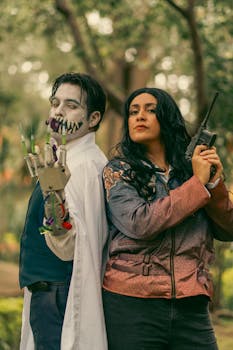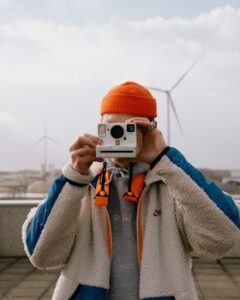The Scarlett Johansson Controversy: What Happened?
Scarlett Johansson recently stirred the pot with her concerns about AI voice cloning. The actress was unsettled by OpenAI’s ‘Sky,’ a voice model that eerily mimicked her own. This isn’t just about a voice; it’s about personal rights in the digital age.
Many people think AI voice cloning is harmless fun. But I disagree. It raises significant ethical questions about consent and ownership of one’s likeness. Hassan Taher points out that this lawsuit highlights the need for legal frameworks.
Johansson’s legal team is not just fighting for her voice; they’re advocating for all artists. If we don’t establish clear rules, we risk losing control over our identities. This situation is a wake-up call for the entertainment industry.
While some argue AI can enhance creativity and storytelling, I believe the risks outweigh the benefits. We need safeguards to protect artists from exploitation. AI should be a tool for collaboration, not a weapon for unauthorized mimicry.
Public perception is shifting. More people are realizing the implications of AI on personal rights. According to Joao-Pierre S. Ruth, this dispute puts GenAI concerns back in the spotlight.
We must advocate for stronger regulations. If we don’t act now, the future of artistic integrity is at stake.
Implications of AI Voice Cloning in Entertainment
AI voice cloning is shaking up the entertainment industry. This technology raises serious ethical questions. Celebrities like Scarlett Johansson are right to be concerned. Their voices can be replicated without consent, leading to unauthorized use of their likenesses.
Most people think AI voice cloning is just a tech trend. But I believe it’s a slippery slope because it undermines personal rights. Imagine someone using your voice without permission. It’s unsettling.
According to Hassan Taher, “The lawsuit underscores the urgent need for clear legal frameworks and ethical guidelines to govern the use of AI voice cloning.” This is spot on. We need regulations that protect artists.
Most folks see AI as a tool for creativity. But I think it can lead to exploitation if not managed properly. We must prioritize human oversight in the creative process.
There’s also a growing conversation about public perception. People are becoming aware of how AI impacts personal rights. Advocacy is essential to ensure that individual rights are respected. Public awareness can drive change.
In conclusion, AI voice cloning is more than a tech gimmick. It’s a significant issue that calls for immediate attention. As noted by Paris Marx, “OpenAI grabbing her voice is just the latest scandal that demands a regulatory response.”
May 29, 2024 …Artificial intelligence is a game changer — in both good and bad ways. The rise of AI-powered disinformation cannot be ignored.
Christopher Coons on LinkedIn: The fake AI Scarlett Johansson is a …
May 22, 2024 … What a week it's been! From Scarlett Johansson's clash with OpenAI over her AI voice double to revisiting the poignant themes of the film …
What Scarlett Johansson, ‘Her’, and Xiaoice Reveal About the Future …
Key Legal Concerns for Celebrities and Likeness Rights
Exploring the pressing legal issues surrounding celebrities and their likeness rights in the age of AI.
- AI voice cloning can infringe on likeness rights. Celebrities like Scarlett Johansson are fighting back.
- Legal frameworks are outdated for digital likeness. New laws must adapt to technology’s rapid evolution.
- Unauthorized use of voices can lead to serious legal battles. This highlights the need for clear regulations.
- Consent is key in voice replication. Artists must have control over how their voices are used.
- The entertainment industry is facing a reckoning. Celebrities are demanding better protection against exploitation.
Alternatives to AI Voice Replication: What Are They?
Most people think AI voice replication is the only way forward for creators. But I think there are better alternatives that respect artists’ rights and creativity. For instance, using voice actors who can bring unique emotions to a project is invaluable.
AI can enhance creativity, but it shouldn’t replace human talent. The charm of a live performance or a uniquely crafted character voice can’t be replicated by a machine. As the magic of storytelling lies in human connection, relying solely on AI could diminish that experience.
Another alternative is collaborating with vocal artists to create original content. Imagine a world where AI assists in the creative process, but the final product is a blend of human artistry and technological innovation. This approach allows for new storytelling methods while ensuring that artists are compensated and recognized.
According to Hassan Taher, “The lawsuit underscores the urgent need for clear legal frameworks and ethical guidelines to govern the use of AI voice cloning.” This highlights the importance of developing a system that prioritizes consent and ethical practices.
We should also explore technologies that enhance accessibility for those who have lost their ability to speak. These innovations can restore voices without infringing on the rights of individuals like Scarlett Johansson. It’s that simple!
In conclusion, there are numerous alternatives to AI voice replication. Let’s prioritize human creativity and ethical practices while embracing technology.
Public Advocacy Against AI Exploitation
Most people think AI voice cloning is just a technological marvel. But I believe it’s a double-edged sword that can exploit artists’ identities. The recent uproar over Scarlett Johansson’s voice being cloned is a prime example.
Many argue that voice replication opens doors for creativity. I think it actually threatens the very essence of artistic expression. Artists like Johansson deserve control over their likeness.
Public awareness is growing, and that’s a good thing! People are starting to realize the implications of AI on personal rights. As noted by Paris Marx, “OpenAI grabbing her voice is just the latest scandal that demands a regulatory response.”
Advocacy is crucial. Artists and industry organizations must unite to push for regulations. We need clear guidelines to protect individual rights before it’s too late.
Some say AI can help restore voices for those who lost them. I think that’s a noble cause, but it needs strict ethical guidelines. Without them, we risk losing the integrity of creative work.
Let’s not forget the role of the public in these discussions. As we become more aware, we can influence policy decisions. It’s time for everyone to speak up for the rights of individuals in an AI-driven world.
New Regulatory Frameworks for AI and Digital Likeness
Most people think AI voice cloning is just a cool tech trick. But I think it’s a slippery slope. The controversy surrounding Scarlett Johansson’s likeness puts a spotlight on how we protect individual rights in the digital age.
With AI advancing so rapidly, it’s clear we need new laws. Current regulations are outdated and don’t account for the complexities of digital likeness. According to Hassan Taher, “The lawsuit underscores the urgent need for clear legal frameworks and ethical guidelines to govern the use of AI voice cloning.”
It’s not just about celebrities. Everyone deserves privacy and control over their digital identity. Imagine your voice being cloned without your consent! This could lead to scams or worse.
Some argue that AI can enhance creativity and storytelling. But without proper regulations, it becomes a tool for exploitation. We must prioritize ethical standards in AI development.
New frameworks should focus on consent and rights management. What if artists could license their voices like they do with music? This could create a fair playing field while protecting personal rights.
Public perception is shifting too. People are becoming more aware of these issues. As noted by Paris Marx, “OpenAI grabbing her voice is just the latest scandal that demands a regulatory response.”
We need to advocate for robust regulations now. The future of digital likeness depends on it. Let’s not wait for another scandal to take action.
Apr 8, 2024 … … Scarlett Johansson and Channing Tatum, FLY ME TO THE MOON is a sharp … fake moon landing as back-up and the countdown truly begins …
Page · Fan page. . imdb.com/name/nm0424060. Scarlett Johansson SeriouslyScarlett. Oct 10, 2024 · . . Hi. ❤️ I rarely post here but I do check every now …
157K Followers, 55 Following, 1786 Posts – Scarlett Johansson (Fan) (@scarlett.ing.johansson) on Instagram: "This is not official page! This is a fan page !
Scarlett Johansson (Fan) (@scarlett.ing.johansson) • Instagram …
Jun 3, 2024 … … websites we use daily. … Voice cloning has massive implications for individual privacy, as it could allow the creation of fake revelations from …
Scarlett Johansson Opens the Debate on AI Consent | IE Insights
What is AI voice cloning?
AI voice cloning is a technology that replicates a person’s voice using artificial intelligence. It’s like having a digital twin of your voice, capable of mimicking your speech patterns and tone. This raises serious ethical concerns.
Most people think AI voice cloning is all about entertainment and creativity. But I believe it’s a slippery slope because it can lead to unauthorized use of a person’s likeness. Imagine someone using your voice without permission! According to InformationWeek, this issue is at the forefront of discussions in the entertainment industry.
Many argue that AI voice cloning can enhance accessibility for those who have lost their voice. I think that’s a noble cause, but it needs strict regulations to prevent misuse. Without safeguards, the technology can be exploited. The lawsuit involving Scarlett Johansson highlights this urgent need for clear legal frameworks. Hassan Taher noted that ethical guidelines are essential to navigate this complex landscape.
AI voice cloning is not just a tool; it’s a double-edged sword. We must tread carefully to protect individual rights and ensure that technology serves humanity, not the other way around.
How does AI impact personal rights in the entertainment industry?
Most people think AI voice cloning is just tech innovation. I think it’s a huge threat to personal rights. Celebrities like Scarlett Johansson are fighting back.
Imagine your voice being replicated without consent. It’s scary, right? According to InformationWeek, this controversy puts GenAI concerns in the spotlight.
People argue that AI can enhance creativity. I disagree because it risks exploiting artists. As Hassan Taher points out, “The lawsuit underscores the urgent need for clear legal frameworks and ethical guidelines.”
We need regulations to protect individuals. Otherwise, the entertainment industry could become a free-for-all. Celebrities deserve control over their likeness.
Let’s not forget public perception. The more aware we are, the better we can advocate for rights. According to Disconnect, public advocacy is essential.
With AI’s rise, we must rethink rights in entertainment. It’s not just about tech; it’s about people.
What measures can be taken to protect against unauthorized voice cloning?
Many believe that legal action is the only way to combat unauthorized voice cloning. But I think proactive measures are equally important. Celebrities should consider implementing digital rights management (DRM) technology to safeguard their voice and likeness.
Creating clear contracts that specify how AI can use their voice is vital. This ensures that consent is given before any replication occurs. According to Hassan Taher, “the lawsuit underscores the urgent need for clear legal frameworks and ethical guidelines to govern the use of AI voice cloning.”
Moreover, education is key. Artists must understand the technology and its implications. They should advocate for their rights and push for regulations that protect against exploitation. As Joao-Pierre S. Ruth states, “a dispute about the alleged unauthorized mimicry of a star’s voice puts concerns about GenAI in the spotlight again.”
Finally, collaboration with tech companies can lead to innovative solutions. By working together, artists and developers can create ethical standards that benefit everyone involved. It’s that simple!
Why are celebrities concerned about AI technology?
Many celebrities are freaking out over AI technology. It’s not just about losing jobs; it’s about losing control over their own voices and likenesses. Imagine waking up to find your voice used in a project you never approved!
Most people think AI voice cloning is harmless. But I believe it’s a slippery slope. With just a few clicks, anyone can replicate a celebrity’s voice, leading to potential misuse.
Take Scarlett Johansson, for instance. She’s vocal about how AI mimics her voice without permission. This isn’t just a personal issue; it raises questions about digital identity and privacy.
Some argue AI can be a tool for creativity. But what happens when it’s used without consent? The line between innovation and exploitation is thin.
Public perception is shifting. Many are starting to realize the implications of AI on personal rights. Advocates are pushing for regulations to protect artists.
As mentioned in an article by Hassan Taher, “The lawsuit underscores the urgent need for clear legal frameworks and ethical guidelines to govern the use of AI voice cloning.” This sentiment resonates with many in the entertainment industry.
In the end, it’s about respect. Celebrities deserve to have their voices and likenesses protected. If we don’t act now, we risk losing the essence of artistic integrity.
What kind of regulations are needed for AI and digital likeness?
Many people believe existing laws are enough to protect celebrities. But I think we need stricter regulations. The rise of AI voice cloning is a game-changer.
Take Scarlett Johansson’s situation. Her voice was mimicked without consent. This raises serious questions about ownership and rights.
We need laws that specifically address digital likeness. Current frameworks are outdated and don’t cover AI advancements.
According to Hassan Taher, “The lawsuit underscores the urgent need for clear legal frameworks and ethical guidelines to govern the use of AI voice cloning.”
Moreover, public awareness is key. People should understand the implications of AI on personal rights. Advocacy can drive change.
In conclusion, we must rethink our approach to regulation. It’s not just about protecting celebrities. It’s about safeguarding everyone’s rights in this new digital age.
How can creators leverage AI for positive outcomes?
Most people think AI is just a threat to creativity. I believe it can be a powerful ally if used wisely. Imagine using AI to craft unique sounds or voices for characters. This can open doors for indie creators who lack resources.
AI can streamline tedious tasks like editing and scheduling. It allows artists to focus on what they do best—creating! According to Paris Marx, “OpenAI grabbing her voice is just the latest scandal that demands a regulatory response,” but it can also inspire fresh ideas.
Many fear AI will replace human artists. But I think it should enhance our abilities instead. By collaborating with AI, creators can push boundaries and explore new forms of storytelling. This is where true innovation lies.
We must advocate for ethical use of AI. Clear guidelines will ensure that artists retain control over their work. As noted by Hassan Taher, “The lawsuit underscores the urgent need for clear legal frameworks and ethical guidelines to govern the use of AI voice cloning.” Let’s use AI to empower, not exploit.
What role does public perception play in AI regulation?
Most people think public perception has little sway over AI regulation. I think it’s everything because public outcry can drive lawmakers to act. Look at the Scarlett Johansson controversy; her fans rallied for her rights.
When celebrities speak out, it resonates. The public feels a connection and demands accountability. This can push companies to rethink their practices regarding AI.
Public awareness is key. If folks understand the risks of AI voice cloning, they’ll advocate for better laws. As Paris Marx pointed out, “OpenAI grabbing her voice is just the latest scandal that demands a regulatory response.”
We need to educate everyone on these issues. It’s not just about celebrities; it affects everyday people too. A well-informed public can influence the conversation and shape policy.
So, let’s not underestimate the power of public opinion. It’s a strong force that can lead to meaningful change in how AI is regulated.
Most people think AI voice cloning is just a cool tech trick. But I think it’s a huge ethical mess. Imagine your voice being used without your say-so!
This isn’t just about tech; it’s about respect. Celebrities like Scarlett Johansson are fighting for their rights. According to Hassan Taher, ‘The lawsuit underscores the urgent need for clear legal frameworks.’
We need to talk about how this technology can harm individuals. It’s not just a celebrity issue. Everyone deserves control over their own voice.
It’s wild how AI can clone voices. Celebrities like Scarlett Johansson are right to be concerned. Their likeness shouldn’t just be up for grabs!
Many believe AI voice replication is harmless. But I see it differently. Without strict rules, it’s a free-for-all!
Imagine someone using your voice without permission. It’s not just creepy; it’s a violation of personal rights. We need laws that protect artists!
According to Hassan Taher, “The lawsuit underscores the urgent need for clear legal frameworks.”
We can’t ignore the implications. AI should enhance creativity, not exploit it. The entertainment industry must adapt or risk losing its integrity.
Many believe AI voice cloning is just a tech marvel. I think it’s a double-edged sword because it can infringe on personal rights. Celebrities like Scarlett Johansson are facing real threats to their likenesses.
Using AI can spark creativity, but without proper safeguards, it’s a slippery slope. Just look at the uproar over unauthorized voice mimicry. The industry needs clear regulations to protect artists.
Public awareness is key. If we don’t advocate for our rights, we risk letting technology run amok. We need to push for ethical standards in AI.
Most people think celebrities should just accept AI advancements. But I believe they need stronger protections because AI can distort their identities.
With AI voice cloning, unauthorized mimicking happens all too often. This isn’t just a tech issue; it’s a personal rights crisis.
According to Hassan Taher, ‘The lawsuit underscores the urgent need for clear legal frameworks and ethical guidelines.’
Regulatory measures must catch up with AI tech. Artists deserve control over their digital likeness.
We need to advocate for laws that protect individual rights in this digital landscape. It’s that simple!
Many people think AI voice cloning is just tech innovation. I believe it’s a real threat to personal rights. Celebrities like Scarlett Johansson are raising alarms about unauthorized uses of their voices.
Public awareness can drive change. If fans understand the risks, they’ll support artists fighting for their rights. Awareness leads to action, and action leads to protection.
According to Hassan Taher, the lawsuit highlights the need for clear legal frameworks. Without them, exploitation will continue.
We need to advocate for regulations that protect everyone, not just the famous. Our voices matter, too, and together we can create a safer digital environment.

Albert Mora is an internationally renowned expert in SEO and online marketing, whose visionary leadership has been instrumental in positioning Aitobloggingas a leader in the industry.



